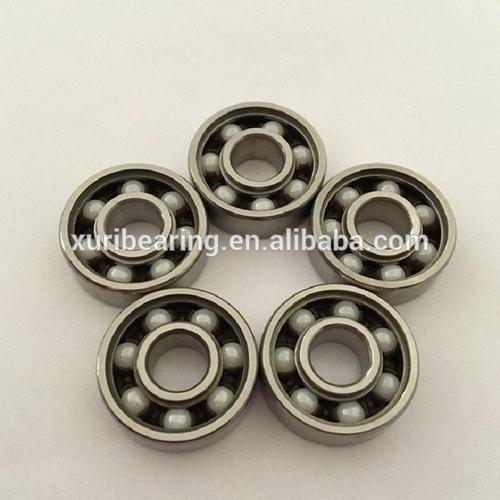Top 5 Factors to Consider When Buying Wholesale Skateboard Bearings | Ultimate Guide
Wholesale skateboard bearings are crucial components for distributors, retailers, and serious skateboarders seeking bulk purchases. These precision-engineered parts determine board performance, durability, and maintenance costs. Understanding technical specifications like ABEC ratings, material composition, and lubrication types helps buyers make informed purchasing decisions while securing competitive wholesale pricing.
1、best wholesale skateboard bearings2、ABEC ratings for bulk bearings
3、skateboard bearing materials comparison
4、wholesale bearing lubrication options
5、bulk skate bearing suppliers
1. Best Wholesale Skateboard Bearings

Identifying the best wholesale skateboard bearings requires evaluating multiple performance factors. High-grade bearings typically feature chromium steel construction with Rockwell hardness ratings between 58-62 HRC. Industrial buyers should verify ISO 9001 certification from manufacturers, ensuring consistent quality across large orders. The ABEC rating system (ranging from ABEC 1 to ABEC 9) indicates precision tolerance levels, though many professional skaters prioritize smooth operation over maximum ABEC classifications. Consider mixed ceramic hybrids for reduced friction and heat resistance in high-speed applications. Always request sample batches before committing to bulk purchases to test spin velocity and noise levels under actual skating conditions.
2. ABEC Ratings for Bulk Bearings
The ABEC scale measures bearing precision through dimensional tolerances, crucial for wholesale buyers purchasing large quantities. While ABEC 5 remains popular for general skating needs, competitive skaters often prefer ABEC 7 or 9 bearings for technical maneuvers. However, recent industry studies suggest that proper lubrication and seal quality impact performance more significantly than ABEC classification alone. Bulk buyers should analyze cost-benefit ratios between different ABEC grades, considering that higher-rated bearings typically cost 15-20% more in wholesale quantities. Modern alternatives like the ILQ rating system offer alternative measurement parameters worth exploring for specialized applications.
3. Skateboard Bearing Materials Comparison
Material selection directly impacts bearing longevity and maintenance requirements in wholesale purchases. Stainless steel bearings provide excellent corrosion resistance for outdoor use, while titanium-coated options offer superior strength-to-weight ratios. Ceramic hybrids reduce friction by 30-40% compared to traditional steel bearings, though they command premium wholesale pricing. For budget-conscious bulk buyers, carbon steel bearings with proper sealing can deliver adequate performance at 25% lower costs. Always verify material certifications and conduct salt spray tests (ASTM B117) when evaluating bearing durability for wholesale inventory.
4. Wholesale Bearing Lubrication Options
Lubrication significantly affects bearing performance and maintenance intervals in bulk purchases. High-speed grease remains popular for long-lasting protection, while oil-based lubricants offer smoother initial operation. Newer synthetic formulas provide water resistance and reduced dirt accumulation. Wholesale buyers should consider application-specific needs: speed-oriented bearings benefit from thin Teflon-infused oils, whereas cruiser boards perform better with thicker lithium-based greases. Always confirm lubrication compatibility with bearing seals - poor combinations can increase friction by up to 18%. Request technical datasheets detailing viscosity indexes and temperature ranges from suppliers before finalizing bulk orders.
5. Bulk Skate Bearing Suppliers
Selecting reliable wholesale suppliers requires thorough due diligence. Verify minimum order quantities (MOQs), typically ranging from 500-5,000 units in the bearing industry. Reputable suppliers provide material test reports and offer customizable packaging options. Consider manufacturers with in-house R&D departments for technical support. Evaluate shipping logistics carefully - some suppliers include customs clearance in FOB pricing, while others charge separately. Always negotiate warranty terms for defective units in bulk purchases, aiming for at least 1-2% replacement allowance. Industry-leading suppliers often provide CAD models and load capacity charts for professional buyers.
Understanding these five critical aspects of wholesale skateboard bearings empowers buyers to make strategic purchasing decisions. From material science to supplier negotiations, each element contributes to obtaining optimal performance bearings at competitive bulk pricing. Whether upgrading inventory for retail distribution or equipping a professional skating team, combining technical knowledge with market insights ensures cost-effective acquisitions. The following sections delve deeper into each component, providing actionable data for comparing specifications and identifying value-packed wholesale deals.
This comprehensive guide covers essential technical specifications, market trends, and procurement strategies for wholesale skateboard bearings. By analyzing material properties, performance metrics, and supplier qualifications, buyers can optimize their purchasing decisions. Implement these insights to secure durable, high-performance bearings that meet specific skating demands while maintaining profitable margins in bulk transactions.




 13869596835
13869596835